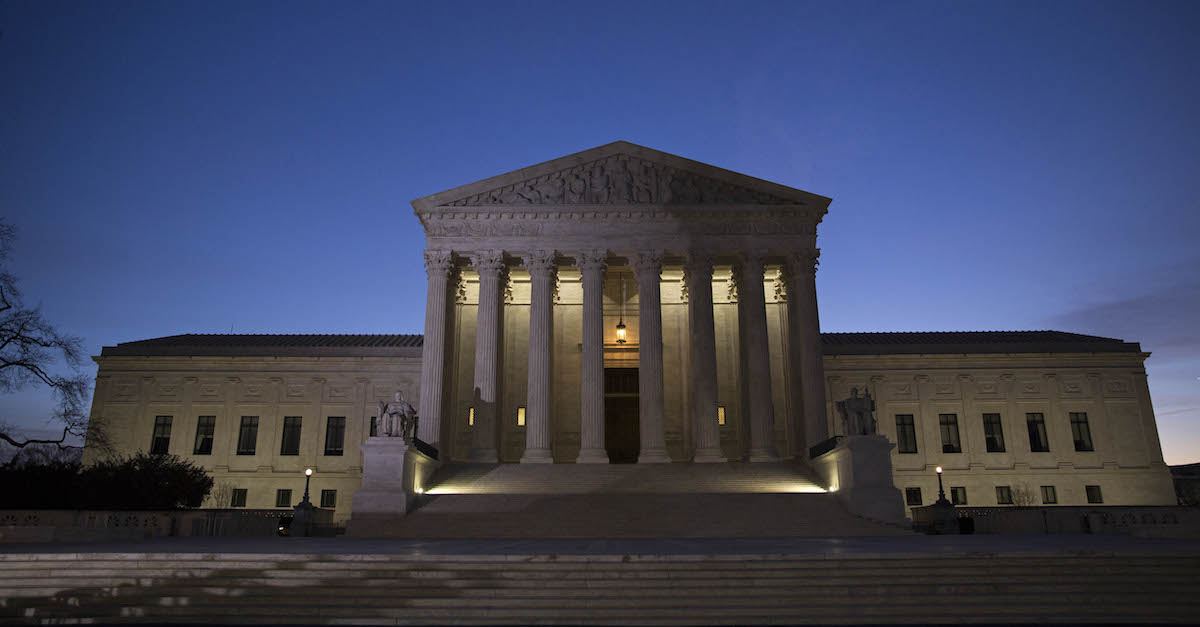
The House Judiciary Committee is holding a hearing on Thursday afternoon to address the rise of the “shadow docket” in the Supreme Court of the United States.
The term “shadow docket,” first coined by University of Chicago law professor Will Baude in 2015, refers to emergency rulings decided outside the Court’s regular docket—that is, rulings issued before the lower court has reached a final decision on the merits.
Normally, a party will file a petition for certiorari and explain in a brief why they think their case should be heard by the court. If the Supreme Court eventually grants cert, it agrees to hear the case. Oral arguments and opinions follow; the justices’ reasoning and the sides on which they fall are visible. In the pandemic era, Supreme Court oral arguments have become more transparent than ever through live streaming.
“Shadow docket” non-merits orders, however, are often unsigned and may not be accompanied by an explanation detailing the court’s reasoning, leaving the public with little to no clue as to how or why the justices voted on issues of high importance.
The Trump administration’s reliance on filing grievances with the high court only further exacerbated the problems presented by the shadow docket. In just the past year, such rulings have had a significant impact on election law, pandemic response regulations, voting rights, and federal executions without being subject to the typical process and transparency.
For example, when a lower court issued an injunction blocking the implementation of Donald Trump’s so-called Muslim travel ban, the Court suspended that injunction and allowed the policy to stay in effect pending its ultimate disposition by the nine justices themselves. That gave the administration ample time to cure the ban’s original legal deficiencies before a decision on the merits of the original ban could be reached. In the inverse, the Court can suspend the implementation of a policy, such as New York’s pandemic regulations limiting the number of people that may attend a church service without hearing oral arguments on the case.
As the Trump administration showed, aggressive pursuit of shadow docket rulings can be an effective and entirely legal way to circumvent the typically protracted legal processes. As University of Texas law professor Steve Vladeck explained in an op-ed for Slate, growth of the shadow docket has increasingly politicized the court with minimal transparency.
“Not only are these shadow docket rulings decided by narrow margins, but they’re also more strictly partisan. Unlike the unusual lineups we sometimes see in cases that receive full briefing and argument, the 5–4 splits in stay cases have all featured the same two voting alignments: Chief Justice John Roberts joining the other conservative justices to form a majority, or joining the progressives to form a majority,” he wrote in Aug. 2020. “Because all of this is happening in the shadows, we can’t know for sure why it’s happening—including whether this is a function of Kennedy’s departure, a substantive shift in how the justices weigh the traditional factors that are supposed to go into resolution of such orders, a newfound hostility to lower courts, or some combination of all three.”
Vladeck will get the chance to make his case before the House Subcommittee on Courts, Intellectual Property, and the Internet Thursday at 2:00 p.m., as he is one of the expert witnesses the panel called to testify.
He will be joined by Amir Ali of the MacArthur Justice Center, Professor Michael Morley of Florida State University College of Law, and Loren AliKhan, the solicitor general of the District of Columbia.
Colin Kalmbacher contributed to this report.
[image via Drew Angerer/Getty Images]